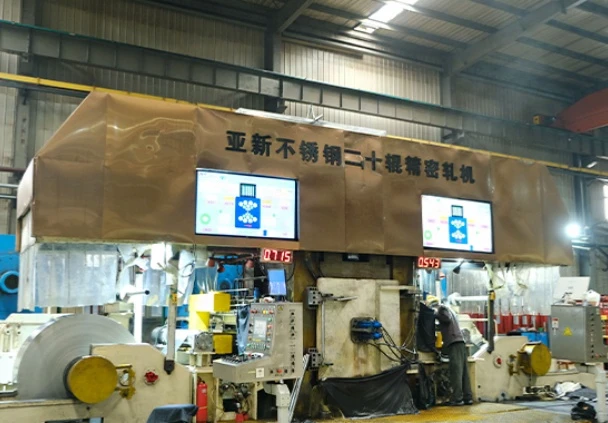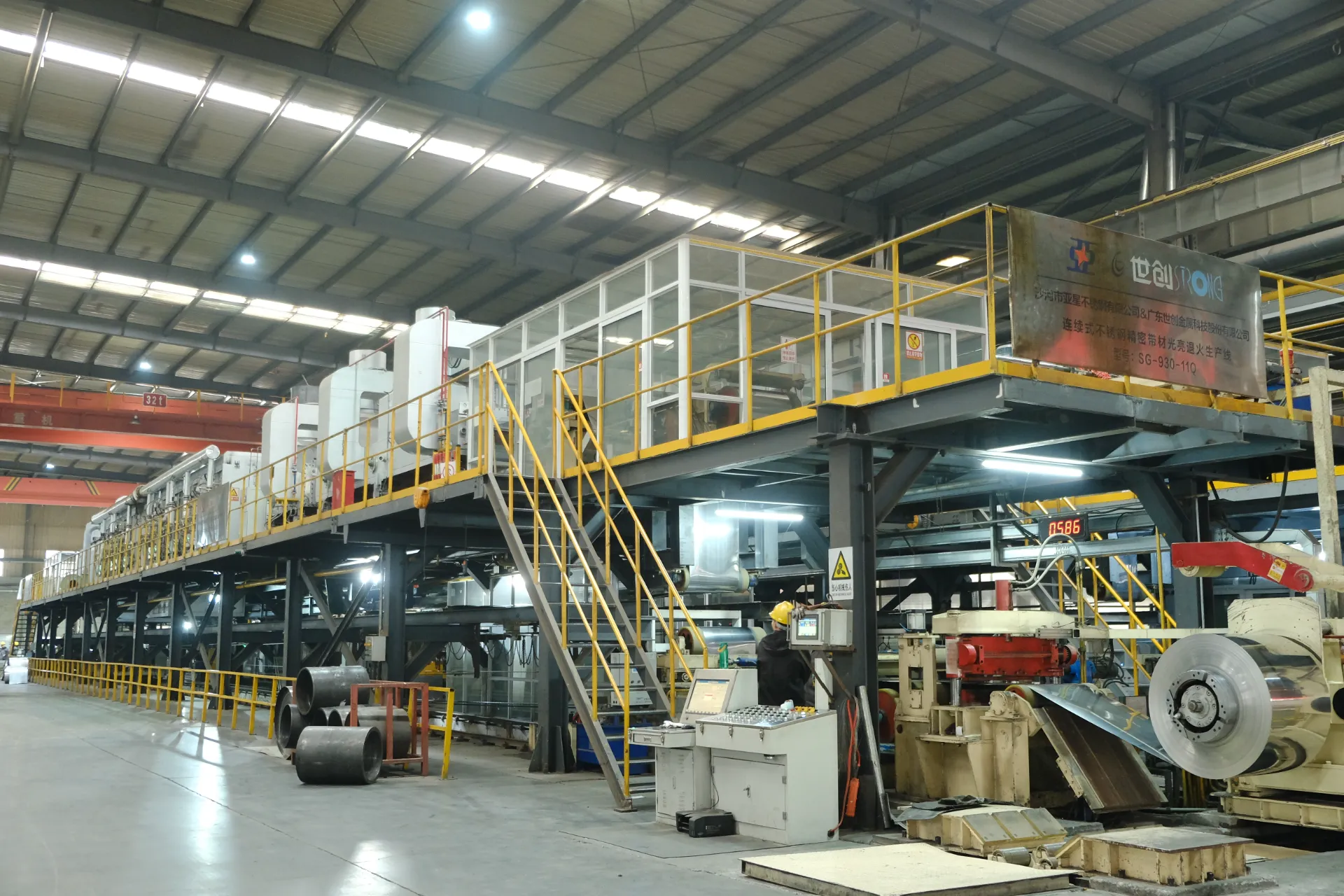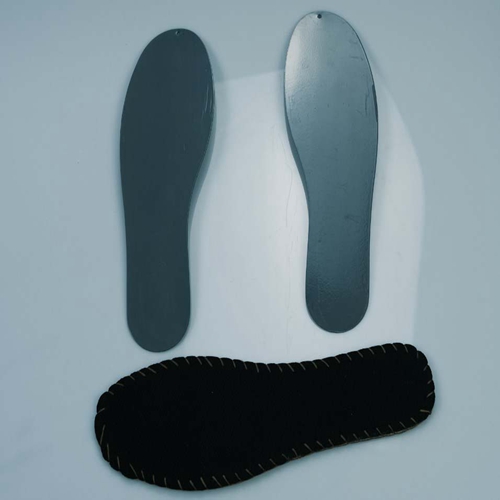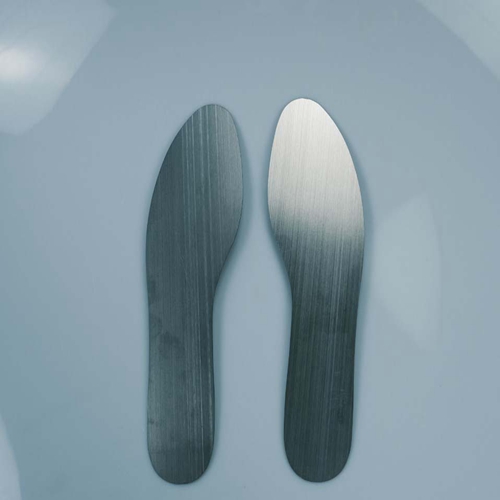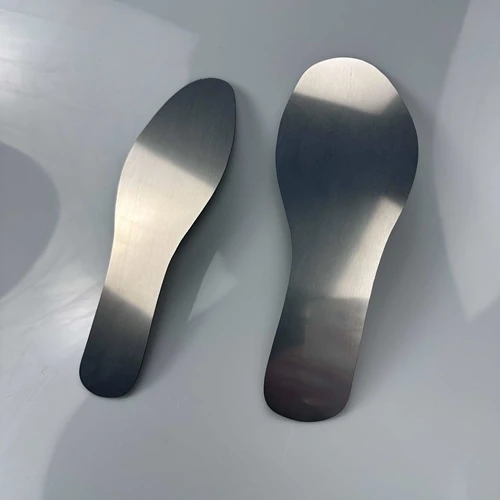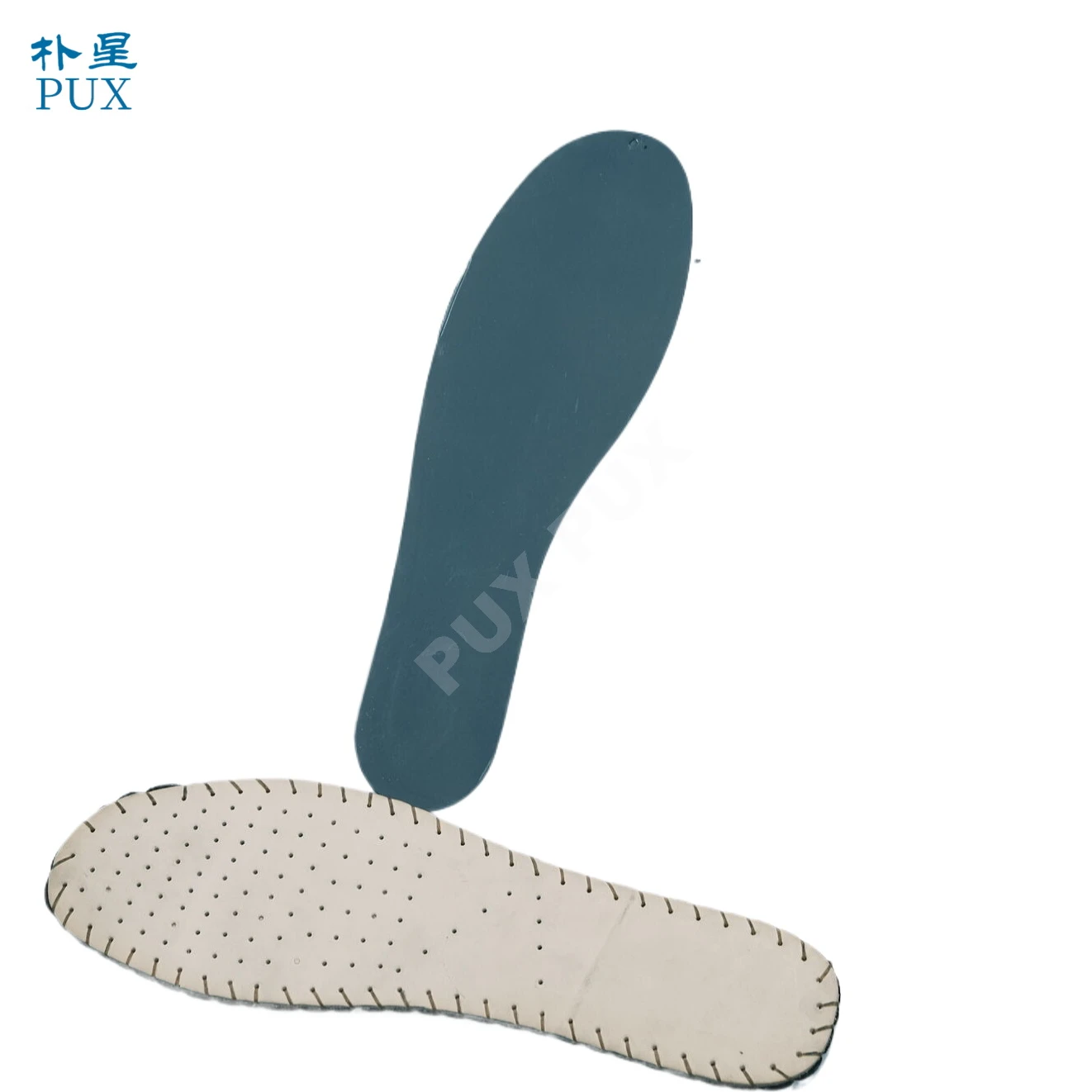önümleri
The steel midsole is a vital protective component in industrial footwear, offering unmatched puncture resistance against sharp objects like nails or metal debris. Made from hardened carbon steel, it provides a rigid barrier that distributes impact forces evenly across the foot. Its tempered construction (1-2mm thick) balances durability with flexibility, while corrosion-resistant coatings ensure longevity in harsh environments.
The steel plate also enhances stability, reducing foot fatigue during prolonged standing on hard surfaces. Though slightly heavier than composite alternatives, its superior penetration protection and load-bearing capacity make it ideal for construction, manufacturing, and heavy industry applications. Modern designs integrate ergonomic contours and compatibility with other safety features, maintaining workplace protection without compromising comfort.
-
Howpsuzlyk aýakgap öndürijisi üçin ýokary hilli kevlar orta plastinka
Haryt:Kewla Midsole
Arza:Howpsuzlyk aýakgaplary üçin
Material:Kewla
Galyňlygy:0.5mm / 0.8mm
Reňk:ak
Standart:EN22568
Giriş garşylygy:1200N
Çeýe garşylyk:EN22568 (1500000times) standarty
Funksiýa:suwa garşy durmak, döwülmäge garşy, deşige garşy, skidproof
Gelip çykan ýeri:Hebei, Hytaý
-
Aýakgaplar üçin howpsuzlyk polatlary Polat plastinka Dyrnaklara garşy
Haryt:Mn polat
Arza:Howpsuzlyk aýakgaplary üçin
Material:Mn polat
Galyňlygy:0.49-0.5mm
Reňk:gara
Standart:EN22568
Giriş garşylygy:1200N
Funksiýa:anti-täsir, ýag garşylygy, anti-statik
Gelip çykan ýeri:Hebei, Hytaý
-
Qualityokary hilli EN standart poslamaýan polat orta
Poslamaýan polatdan punktura garşy insollar ýokary hilli polatdan ýasalýar, howpsuzlyk aýakgaplary üçin amatly, gowy deşik bar
garşylyk we 1 000 000-den gowrak egilip bilner, onuň üstüni güýçlendirmek üçin epoksi rezin mat poroşok spreýinden ýasalýar
ýelmeşmek, pos we punkta garşy. Polat pirsing Mid dabany köp ýyl bäri howpsuzlyk aýakgap ýasamakda ulanylýar. Bu
inçe, arzan we howpsuzlyk aýakgap öndürijileri tarapyndan giňden ulanylýar. (Polat anti-penetraion Zawodymyzda öndürilen orta daban bar
Çeýe garşylyk: (1000000 gezek), EN12568, CSA (1500000 gezek) standart. Giriş garşylygy 1100N Çeýe garşylyk
100PRS / CTN). OWROPA STANDARD EN12568 bar.
Haryt:poslamaýan polatdan ýasalan orta
Arza:Howpsuzlyk aýakgaplary üçin
Material:poslamaýan polat
Galyňlygy:0.49mm
Reňk:kümüş
Standart:EN22568
Giriş garşylygy:1200N
Çeýe garşylyk:EN22568 (1000000 wagt) standarty
-
Stainless Steel Insole
Steel bottom can prevent puncture, anti-static, zigzag resistance, acid and alkali resistance, high and low temperature resistance. Quality up to EN, CSA, JIS and other international standards, is the work shoes, labor protection shoes and other protective shoes necessary protective products Stainless steel anti-puncture insole made of high quality steel, is the ideal choice for safety shoes, has good puncture resistance, can be bent more than 1,000,000 times. The surface is sprayed with epoxy resin matte powder to enhance adhesion, prevent rust and puncture. Especially in the site is particularly popular, mainly used to prevent stepping on nails or other sharp objects, due to its high hardness, wear resistance characteristics, can effectively protect the safety of the foot, reduce the risk of injury.Durable: Compared with ordinary insoles, stainless steel insoles are stronger, not easy to damage, and have a long service life.
What is a steel midsole?
A steel midsole is a protective layer embedded in work boots between the insole and outsole, designed to prevent puncture injuries from sharp objects like nails or metal shards. Typically made from thin, tempered steel, it provides rigid structural support while maintaining flexibility for walking comfort. The steel plate acts as an impenetrable barrier that meets ASTM F2413 safety standards for puncture resistance. Unlike surface protection, the midsole's strategic placement shields the entire footbed without adding excessive bulk.
While offering superior protection in industrial environments, steel midsoles do add some weight to footwear and can conduct temperature extremes. Modern designs often incorporate perforations or contours to improve flexibility and breathability while maintaining safety performance. This critical safety feature has become standard in many construction, manufacturing, and utility work boots where puncture hazards exist.
Pros and cons of Steel Midsole versus Composite
Steel midsoles and composite midsoles each have distinct advantages and drawbacks in work boot construction. Steel midsoles provide superior puncture resistance and structural rigidity, making them ideal for heavy industrial environments with sharp debris. They offer excellent protection against extreme compression and maintain stability over time, but add significant weight to the footwear and can conduct temperature extremes. Composite midsoles are lighter weight (typically 30-50% reduction), non-metallic (making them metal detector friendly), and provide better insulation against hot/cold surfaces.
While they meet most safety standards for puncture resistance, composites may not withstand repeated extreme impacts as well as steel. Composite materials also tend to be more flexible, improving comfort during extended wear but potentially offering less support for heavy loads. The choice depends on workplace hazards - steel excels in high-risk industrial settings while composites better suit lighter duty applications where weight and thermal comfort are priorities.





